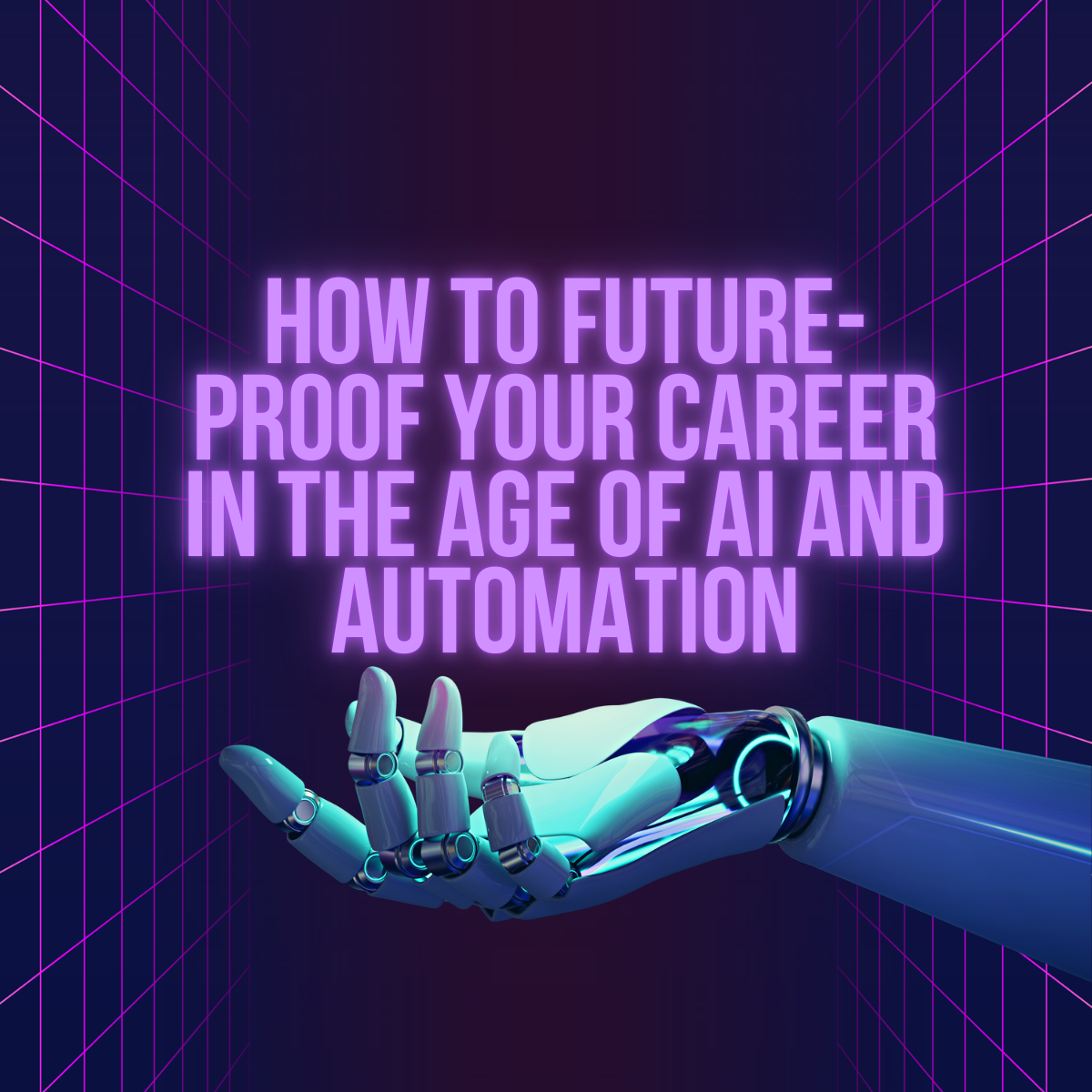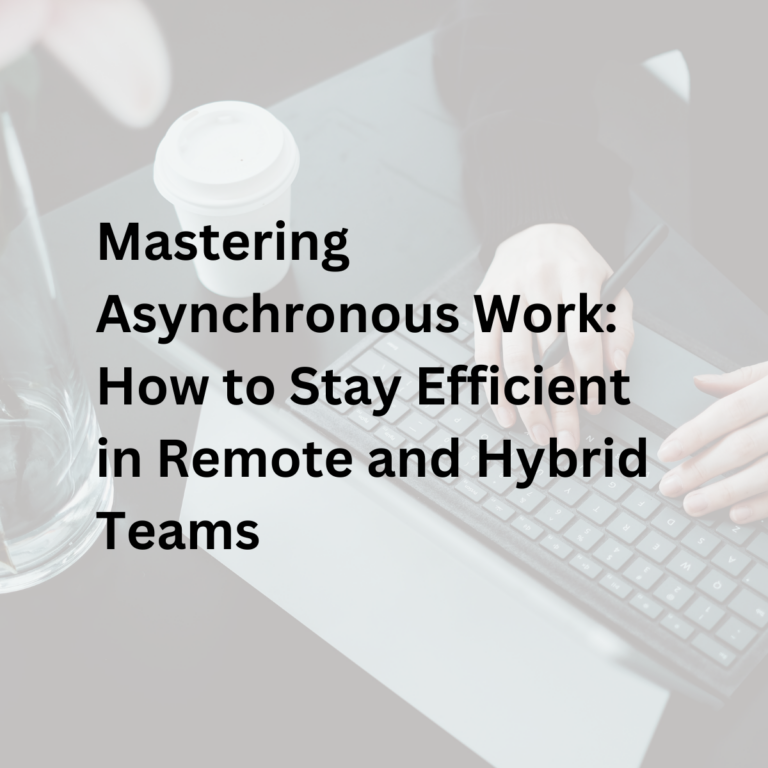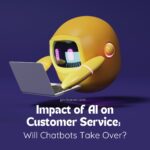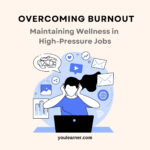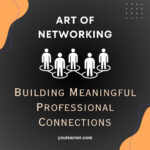The rapid advancement of artificial intelligence (AI) and automation is transforming industries, reshaping job roles, and redefining the future of work. While these technologies offer increased efficiency and innovation, they also raise concerns about job displacement and skill obsolescence. The key to thriving in this evolving landscape is to future-proof your career by staying adaptable, continuously learning, and leveraging the very technologies that are driving change.
This comprehensive guide will explore the impact of AI and automation, the skills required for the future workforce, and practical strategies to ensure career longevity and success in an AI-driven world.
The Impact of AI and Automation on the Job Market
1. The Automation of Routine Tasks
AI-powered systems and robotic process automation (RPA) are increasingly automating repetitive and rule-based tasks across industries. This includes:
- Data entry and processing
- Customer service chatbots
- Manufacturing and assembly line automation
- Automated financial reporting
While this improves efficiency, it also means that many traditional jobs are at risk of being replaced or significantly altered.
2. The Evolution of Job Roles
Instead of eliminating jobs outright, AI and automation are transforming existing roles. Many professionals will need to adapt to hybrid roles that require both technical and soft skills. For example:
- Accountants are using AI-powered tools for predictive analytics.
- Marketers leverage AI for data-driven decision-making.
- Healthcare professionals incorporate AI diagnostics into their practice.
3. The Demand for New Skills
As AI continues to evolve, certain skills will become more valuable. Jobs that require problem-solving, creativity, emotional intelligence, and technical proficiency will be in high demand.
Essential Skills to Future-Proof Your Career
1. Digital and Technical Literacy
Regardless of your industry, having a fundamental understanding of AI, data analytics, and automation tools is essential. Key areas to focus on include:
- AI and machine learning basics
- Data analytics and visualization tools (e.g., Power BI, Tableau)
- Coding and automation scripts (Python, R, SQL)
2. Adaptability and Continuous Learning
A growth mindset is critical in an ever-changing work environment. To stay relevant:
- Embrace lifelong learning through online courses (Coursera, Udemy, LinkedIn Learning)
- Attend industry conferences and workshops
- Stay updated with emerging trends via blogs, podcasts, and webinars
3. Problem-Solving and Critical Thinking
AI can analyze data, but human intuition and problem-solving capabilities remain irreplaceable. Employers will prioritize professionals who can:
- Analyze complex situations and make informed decisions
- Solve non-routine problems with innovative solutions
- Apply logic and reasoning in unpredictable scenarios
4. Emotional Intelligence and Human-Centric Skills
Interpersonal skills remain vital in a world where AI is handling technical tasks. These include:
- Effective communication and collaboration
- Leadership and team management
- Negotiation and conflict resolution
5. Creativity and Innovation
AI excels at pattern recognition, but human creativity is unmatched. Professionals should:
- Develop original ideas and approaches to problems
- Innovate new products, services, and business models
- Foster a mindset of experimentation and adaptability
Practical Strategies to Future-Proof Your Career
1. Embrace Lifelong Learning and Upskilling
- Identify skill gaps and take relevant courses.
- Obtain industry certifications to validate expertise.
- Engage in cross-disciplinary learning to diversify knowledge.
2. Develop a Hybrid Skill Set
- Combine technical expertise with soft skills (e.g., an AI engineer with strong business acumen).
- Learn complementary skills such as digital marketing, project management, or UX/UI design.
3. Stay Agile and Open to Change
- Be willing to shift roles or industries as opportunities arise.
- Take on new projects that challenge you to learn.
- Build resilience by embracing uncertainty.
4. Leverage AI Instead of Competing With It
- Use AI-driven tools to enhance productivity (e.g., ChatGPT for content creation, Grammarly for writing assistance).
- Automate repetitive tasks to focus on strategic initiatives.
- Stay informed about how AI is shaping your industry.
5. Build a Strong Professional Network
- Connect with industry professionals via LinkedIn and networking events.
- Join professional organizations and online communities.
- Seek mentorship from experts in emerging fields.
6. Focus on Value Creation
- Identify how you can contribute to business growth and innovation.
- Demonstrate problem-solving skills that AI cannot replicate.
- Position yourself as an indispensable asset to your organization.
7. Explore Entrepreneurial and Freelance Opportunities
- The gig economy and remote work have expanded opportunities beyond traditional employment.
- Consider freelancing, consulting, or starting a side hustle that aligns with future trends.
- Build a personal brand and showcase expertise through blogging, speaking engagements, and social media presence.
Industries and Roles That Are Likely to Thrive in the Age of AI
While some jobs are at risk, others will see growing demand. Careers that require a combination of human creativity, emotional intelligence, and technical expertise are poised for success. These include:
1. Technology and Data Science
- AI and Machine Learning Engineers
- Data Scientists and Analysts
- Cybersecurity Experts
2. Healthcare and Biotechnology
- AI-Assisted Medical Professionals
- Genetic Counselors
- Health Informatics Specialists
3. Creative and Strategic Fields
- UX/UI Designers
- Digital Marketing Experts
- Brand Strategists
4. Human-Centric Roles
- Psychologists and Therapists
- HR and Organizational Development Professionals
- Customer Experience (CX) Specialists
5. Green and Sustainable Careers
- Renewable Energy Specialists
- Climate Change Analysts
- Urban Planners for Smart Cities
Conclusion: Preparing for a Future-Proof Career
The rise of AI and automation is inevitable, but with the right mindset and strategies, professionals can thrive in the evolving job market. Future-proofing your career requires adaptability, continuous learning, and leveraging technology to your advantage rather than fearing it.
By focusing on skills that AI cannot easily replace—such as creativity, emotional intelligence, problem-solving, and leadership—you can ensure long-term career success. The future belongs to those who are willing to learn, evolve, and embrace change.
Take Action Today
- Identify your key skills and areas for improvement.
- Enroll in online courses and upskill continuously.
- Stay ahead of industry trends and network with professionals.
- Embrace AI as a tool to enhance your career, not as a threat.
The future of work is here—prepare for it and seize the opportunities it presents!
